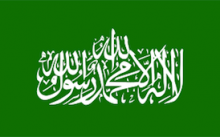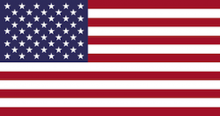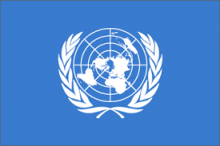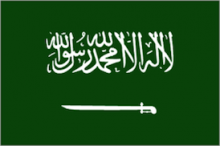Yemen

The Muslim Brotherhood first emerged in Yemen in the 1960s and 1970s, when U.N.-sanctioned Abd al-Majeed al-Zindani—the founder of the Brotherhood’s branch in Yemen—led a group of clerics to establish a religious schooling system in northern Yemen.Leslie Campbell, “Yemen: The Tribal Islamists,” Woodrow Wilson International Center for Scholars, accessed May 30, 2016, https://www.wilsoncenter.org/yemen-the-tribal-islamists. Following the 1990 merger of North and South Yemen, Zindanico-founded Islamist political party al-Islah (“Congregation for Reform”) with the support of then-President Ali Abdullah Saleh.Leslie Campbell, “Yemen: The Tribal Islamists,” Woodrow Wilson International Center for Scholars, accessed May 30, 2016, https://www.wilsoncenter.org/yemen-the-tribal-islamists. Since its founding in the 1990s, al-Islah has remained one of the leading political parties in Yemen, vacillating at times between an opposition party and a government ally.Leslie Campbell, “Yemen: The Tribal Islamists,” Woodrow Wilson International Center for Scholars, accessed May 30, 2016, https://www.wilsoncenter.org/yemen-the-tribal-islamists. Saudi Arabia designated al-Islah as a terrorist organization in 2014. In 2015, however, Saudi Arabia reportedly began providing the group with financial and artillery support to fight Houthi rebels.Matthew Hedges and Giorgio Cafiero, “The GCC and the Muslim Brotherhood: What Does the Future Hold?,” Middle East Policy Council, Spring 2017, http://www.mepc.org/journal/middle-east-policy-archives/gcc-and-muslim-brotherhood-what-does-future-hold; Hussein Ibish, “Saudi Arabia’s New Sunni Alliance,” New York Times, July 31, 2015, https://www.nytimes.com/2015/08/01/opinion/hussein-ibish-saudi-arabias-new-sunni-alliance.html?_r=0; Angus McDowall, “Sectarian hate takes root as Yemen anti-Houthi forces push on Sanaa,” Reuters, October 21, 2015, http://www.reuters.com/article/us-yemen-security-marib-insight-idUSKCN0SF1AF20151021. Al-Islah has longstanding ties to the Brotherhood, but the group declared in 2013 and again in 2016 that it is not associated with the global Brotherhood movement.Badr al-Qahtani, “Yemen’s Islah Party: ‘We Rectified Political Confusion by Renouncing Muslim Brotherhood,’” Asharq al-Awsat (London), September 16, 2016, http://english.aawsat.com/2016/09/article55358448/yemens-islah-party-rectified-political-confusion-renouncing-muslim-brotherhood; “Rebels in Yemen abduct Sunni rivals amid Saudi airstrikes,” CBS News, April 15, 2015, http://www.cbsnews.com/news/rebels-in-yemen-abduct-sunni-rivals-amid-saudi-airstrikes/. Al-Islah reportedly declared again in 2018 that it had no affiliation with the Brotherhood.Saeed Al Batati, “Yemen’s Islah party distances itself from Brotherhood,” Gulf News, January 9, 2018, http://gulfnews.com/news/gulf/yemen/yemen-s-islah-party-distances-itself-from-brotherhood-1.2154324.
The history of the Brotherhood in Yemen is intricately tied to the work of its founders and most significantly to Zindani. In the 1960s, Zindani established a number of schools, called “scientific institutes,” mimicking the madrassas school system in Afghanistan and Pakistan. Through an ascetic Wahhabi-Salafist curriculum, the school aimed to counter the wave of secularism coming from the socialist-run South Yemen.Leslie Campbell, “Yemen: The Tribal Islamists,” Woodrow Wilson International Center for Scholars, accessed May 30, 2016, https://www.wilsoncenter.org/yemen-the-tribal-islamists. In the 1980s, Zindani and a number of his students went to Afghanistan to join the mujahideen in their fight against Soviet forces. In addition to serving as an adviser to Osama bin Laden and other al-Qaeda leaders in the 1990s, Zindani has also spoken at Hamas events, including at a Hamas fundraising conference in 2006.“Union of Good,” U.S. Department of the Treasury, November 12, 2008, http://www.treasury.gov/resource-center/terrorist-illicit-finance/Pages/protecting-union-of-good.aspx. Zindani was designated by the United States and United Nations in 2004.“United States Designates bin Laden Loyalist,” U.S. Department of the Treasury, February 24, 2004, http://www.treasury.gov/press-center/press-releases/Pages/js1190.aspx.
Today, al-Islah operates a number of different wings, including political, charitable, and paramilitary wings.AFP, “Yemen: Shiite, Sunni militants fuel chaos,” Daily Mail (London), December 14, 2015, http://www.dailymail.co.uk/wires/afp/article-3359718/Yemen-Shiite-Sunni-militants-fuel-chaos.html. Islah fighters and Islah-affiliated paramilitary groups are particularly concentrated in the country’s north, where the group—backed by Saudi Arabia—has taken up the fight against extremist Houthi rebels.Angus McDowall, “Sectarian hate takes root as Yemen anti-Houthi forces push on Sanaa,” Reuters, October 21, 2015, http://www.reuters.com/article/us-yemen-security-marib-insight-idUSKCN0SF1AF20151021. The UAE has accused al-Islah of seizing 75 percent of the military equipment provided by the Saudi-led coalition in Yemen.“UAE accuses Muslim Brotherhood in Yemen of seizing resistance weapons,” Middle East Monitor, April 6, 2016, https://www.middleeastmonitor.com/20160406-uae-accuses-muslim-brotherhood-in-yemen-of-seizing-resistance-weapons/. Beginning in December 2015 and continuing through 2016, the UAE allegedly contracted a group of U.S. mercenaries to carry out a series of assassinations of al-Islah members in Yemen as part of a mission to “disrupt and destruct” the party. Between 25 and 30 members were reportedly killed.Aram Roston, “A Middle East Monarchy Hired American Ex-Soldiers To Kill Its Political Enemies. This Could Be The Future Of War,” BuzzFeed News, October 16, 2018, https://www.buzzfeednews.com/article/aramroston/mercenaries-assassination-us-yemen-uae-spear-golan-dahlan.
In June 2017, the UAE, Saudi Arabia, and other Gulf states cut diplomatic ties with Qatar over its support of the Muslim Brotherhood and other extremist and terrorist groups. Though al-Islah supports Yemen’s fight against Houthi rebels, the party began to face substantial opposition from the Yemeni state and its Gulf allies, which include the UAE and Saudi Arabia, due to its own links with the Muslim Brotherhood. The UAE and its military proxies in Yemen reportedly began engaging in clashes with al-Islah, and in October, Yemeni security forces raided the Islah headquarters in October and arrested 11 of its leaders.“Brothers no more: Yemen’s Islah party faces collapse of Aden alliances,” Middle East Eye, October 21, 2017, http://www.middleeasteye.net/news/uae-yemen-islah-aden-959249443; “Yemen Islamist party members arrested, ratcheting up members,” Reuters, October 11, 2017, https://www.reuters.com/article/us-yemen-security/yemen-islamist-party-members-arrested-ratcheting-up-tensions-idUSKBN1CG1J1.
In December 2017, al-Islah engaged in diplomatic talks with Saudi Arabia and the UAE, and reports surfaced that the party had severed ties with the Muslim Brotherhood.Ali Mahmood, “UAE and Saudi Arabia hold talks with Yemen’s Al Islah party,” Naitonal (Abu Dhabi), December 14, 2017, https://www.thenational.ae/world/mena/uae-and-saudi-arabia-hold-talks-with-yemen-s-al-islah-party-1.684549; “Yemen Islah party sever ties with Muslim Brotherhood,” Al Arabiya, December 15, 2017, https://english.alarabiya.net/en/News/gulf/2017/12/15/Yemen-Islah-party-sever-ties-with-Muslim-Brotherhood.html. This was confirmed in January 2018 when Islah leader Mohammed Al-Yadomi stated that the party “has no organizational or political ties with the Muslim Brotherhood” and that its priority was to support Yemen’s internationally recognized government in its fight against Houthi rebels.Saeed Al Batati, “Yemen’s Islah party distances itself from Brotherhood,” Gulf News, January 9, 2018, http://gulfnews.com/news/gulf/yemen/yemen-s-islah-party-distances-itself-from-brotherhood-1.2154324.
Al-Islah fighters have continued to clash with militants in Yemen.Agence France-Presse, “Two children killed as fighting flares in Yemen's Taez,” Ahram Online, April 25, 2019, http://english.ahram.org.eg/NewsContent/2/8/330633/World/Region/Two-children-killed-as-fighting-flares-in-Yemens-T.aspx. Militants have also attempted to assassinate al-Islah political leaders. In August 2018, local al-Islah leader Arafat Hazam survived after unknown militants attached a bomb to the bottom of his car. Al-Islah blamed the Interior Ministry and the Aden Director of Security for failing to stop assassination attempts against the party.“Another Islah official survives assassination attempt in Aden,”Al-Sahwah.net, August 8, 2018, http://alsahwa-yemen.net/en/p-21692; “Yemen: Al-Islah holds government responsible for assassination attempts,” Middle East Monitor, August 10, 2018, https://www.middleeastmonitor.com/20180810-yemen-al-islah-holds-government-responsible-for-assassination-attempts/.
In addition to acting primarily as a political bloc, al-Islah also maintains a charitable wing, Charitable Society for Social Welfare (CSSW)."Yemen: Houthis Shut Groups, Detain Activists,” Human Rights Watch, December 13, 2015, https://www.hrw.org/news/2015/12/13/yemen-houthis-shut-groups-detain-activists. The CSSW has ties to both Zindani—who reportedly founded the organization“Susan Schmidt, “Imam From Va. Mosque Now Thought to Have Aided Al-Qaeda,” Washington Post, February 27, 2008, http://www.washingtonpost.com/wp-dyn/content/article/2008/02/26/AR2008022603267.html. and deceased al-Qaeda operative Anwar al-Awlaki, who served as vice president of the organization from 1998 to 1999.“Susan Schmidt, “Imam From Va. Mosque Now Thought to Have Aided Al-Qaeda,” Washington Post, February 27, 2008, http://www.washingtonpost.com/wp-dyn/content/article/2008/02/26/AR2008022603267.html. In 2004, New York federal prosecutors charged that the U.S. branch of the organization had acted as a front for al-Qaeda.“Susan Schmidt, “Imam From Va. Mosque Now Thought to Have Aided Al-Qaeda,” Washington Post, February 27, 2008, http://www.washingtonpost.com/wp-dyn/content/article/2008/02/26/AR2008022603267.html. The CSSW boasts partnerships with a number of different international organizations, including UNICEF, the World Health Organization, the World Bank, and others.“Globally,” CSSW, April 9, 2013, http://csswyemen.org/e/index.php/d-p/4511. The organization released a newsletter in 2009 showing that Zindani had been a featured speaker at one of the group’s charitable events.J.M. Berger, “Exclusive: U.S. Gave Millions to Charity Linked to Al Qaeda, Anwar Awlaki,” IntelWire, April 14, 2010, http://news.intelwire.com/2010/04/us-gave-millions-to-charity-linked-to.html.
History
Violent Activities
Many of the militias fighting the Houthis in northern Yemen are affiliated with al-Islah.Peter Salisbury, “Yemen on the Edge: ISIS, Al-Qaeda, Factional Fighting, Lying Politicians, Proxy Wars, and a Small Team of U.S. Soldiers Serving an ‘Indefinite’Mission,” Vice News, October 12, 2016, https://news.vice.com/story/what-are-us-special-operations-forces-doing-in-yemen. Al-Islah has also been implicated in a series of violent terrorist attacks through its founder, Abd al-Majeed al-Zindani. Among attacks associated with Zindani and the Brotherhood chapter is the October 2000 attack on the USS Cole, which killed 17 Americans.
- December 12, 2000
Al-Qaeda suicide bombers attack the USS Cole at a Yemeni port, killing 17 Americans.“A Claim For The Cole,” CBS News, June 20, 2001, http://www.cbsnews.com/news/a-claim-for-the-cole/. Zindani allegedly issued a religious decree ordering the attack.Michael Slackman, “Yemeni Allegedly Decreed Cole Strike,” Los Angeles Times, January 15, 2003, http://articles.latimes.com/2003/jan/15/world/fg-yemen15.
- March 2006
Zindani pays a legal team to prosecute Yemen Observer editor Mohammad al-Asadi for reprinting Danish cartoons of the prophet Muhammad. Zindani’s legal team calls for the death penalty for Asadi.“Cleric’s Lawyers: Death to Yemeni Publisher of Mohammad Cartoons,” Fox News, March 9, 2006, http://www.foxnews.com/story/2006/03/09/cleric-lawyers-death-to-yemeni-publisher-muhammad-cartoons/.
- January 14, 2010
Zindani threatens to call for violent jihad if U.S. troops enter Yemen to fight al-Qaeda.Robert F. Worth, “Yemen: Clerics Oppose U.S. Troops,” New York Times, January 14, 2010, http://www.nytimes.com/2010/01/15/world/middleeast/15briefs-Yemen.html?ref=world.
- September 13, 2013
Zindani tells Yemenis to emulate Egyptian and Libyan protests in response to the online video “Innocence of Muslims.” Protests erupt in Yemen hours after Zindani’s announcement.Nasser Arrabyee, Alan Cowell, and Rick Gladstone, “Turmoil Over Contentious Video Spreads,” New York Times, September 13, 2012, http://www.nytimes.com/2012/09/14/world/middleeast/mideast-turmoil-spreads-to-us-embassy-in-yemen.html.
- June 2017
The UAE, Saudi Arabia, and other Gulf states cut diplomatic ties with Qatar over its support of the Muslim Brotherhood and other extremist and terrorist groups. Al-Islah begins to face substantial opposition from the Yemeni state and its Gulf allies, which include the UAE and Saudi Arabia, due to its own links with the Muslim Brotherhood. For example, the UAE and its military proxies in Yemen reportedly begin to engage in clashes with al-Islah.“Brothers no more: Yemen’s Islah party faces collapse of Aden alliances,” Middle East Eye, October 21, 2017, http://www.middleeasteye.net/news/uae-yemen-islah-aden-959249443; “Yemen Islamist party members arrested, ratcheting up members,” Reuters, October 11, 2017, https://www.reuters.com/article/us-yemen-security/yemen-islamist-party-members-arrested-ratcheting-up-tensions-idUSKBN1CG1J1.
- June 16, 2018
Al-Islah calls on its followers to launch an intifada (“uprising”) against Houthi militants in Yemen’s Al-Hudeidah province where the Yemeni army and militants are fighting.Ali Aweida, “Yemen party urges anti-Houthi ‘intifada’ in Al-Hudeidah,” Anadolu Agency, June 16, 2018, https://www.aa.com.tr/en/middle-east/yemen-party-urges-anti-houthi-intifada-in-al-hudeidah/1176427.
- April 2019
Al-Islah’s militia clashes with members of the Salafist movement in Taez, killing at least five and wounding 91.Agence France-Presse, “Two children killed as fighting flares in Yemen's Taez,” Ahram Online, April 25, 2019, http://english.ahram.org.eg/NewsContent/2/8/330633/World/Region/Two-children-killed-as-fighting-flares-in-Yemens-T.aspx.
Ties to Extremist Groups
 Al-Qaeda
Al-Qaeda
The Brotherhood in Yemen is linked to al-Qaeda through al-Islah’s leader, Abd al-Majeed al-Zindani. In the 1980s, al-Zindani fought alongside Osama bin Laden against the Soviets in Afghanistan.Evan Kohlman, “In Too Deep,” National Review, January 17, 2003, http://www.nationalreview.com/article/205561/too-deep-evan-kohlmann ; Margaret Coker, “Yemeni Sheik Courts, Warns Foreign Governments,” Wall Street Journal, January 12, 2010, http://www.wsj.com/articles/SB126321683002124521. Zindani went on to advise Osama bin Laden and other al-Qaeda leaders.Security Council Committee pursuant to resolutions 1267 (1999) and 1989 (2011) concerning Al-Qaida and associated individuals and entities,” U.N. Security Council, accessed March 27, 2015, http://www.un.org/sc/committees/1267/individuals_associated_with_Al-Qaida.shtml.
 Al-Qaeda in the Arabian Peninsula (AQAP) and ISIS
Al-Qaeda in the Arabian Peninsula (AQAP) and ISIS
Al-Islah has at times fought alongside AQAP and ISIS in Yemen, according to findings by Saudi Arabia. Since acknowledging the alliance between the three groups in March 2016, Saudi Arabia claims to have reconsidered its strategy in Yemen and its support for the Brotherhood-linked party.David Igantius, “A 30-year-old Saudi prince could jump-start the kingdom — or drive it off a cliff,” Washington Post, June 28, 2016, https://www.washingtonpost.com/opinions/global-opinions/a-30-year-old-saudi-prince-could-jump-start-the-kingdom--or-drive-it-off-a-cliff/2016/06/28/ce669a3e-3c69-11e6-a66f-aa6c1883b6b1_story.html.
 Hamas
Hamas
The Brotherhood in Yemen is linked to Palestinian-based Hamas through al-Islah’s leader, Abd al-Majeed al-Zindani. In 2006, Zindani gave a speech at a Hamas fundraising conference in Yemen. During the conference, the crowd pledged “millions of riyals” for Hamas, according to the U.S. Department of the Treasury.“Union of Good,” U.S. Department of the Treasury, November 12, 2008, http://www.treasury.gov/resource-center/terrorist-illicit-finance/Pages/protecting-union-of-good.aspx.
Designations

United States
February 24, 2004The Department of the Treasury designated “Shaykh Abd-al-Majid al-Zindani” as a Specially Designated Global Terrorist (SDGT).“United States Designates bin Laden Loyalist,” U.S. Department of the Treasury, February 24, 2004, http://www.treasury.gov/press-center/press-releases/Pages/js1190.aspx.

United Nations
February 27, 2004The U.N. Security Council designated “Abd-Al-Majid Aziz Al-Zindani” as an individual associated with al-Qaeda.“Security Council Committee pursuant to resolutions 1267 (1999) and 1989 (2011) concerning Al-Qaida and associated individuals and entities,” U.N. Security Council, accessed March 27, 2015, http://www.un.org/sc/committees/1267/individuals_associated_with_Al-Qaida.shtml.

Saudi Arabia
March 7, 2014Saudi Arabia lists Al-Islah as a terrorist organization.Ali Ibrahim Al-Moshki, “Saudi Arabia Blacklists Yemeni Groups,” Yemen Times (Sana’a), March 13, 2014, http://www.yementimes.com/en/1763/news/3590/Saudi-Arabia-blacklists-Yemeni-groups.htm; Hussein Ibish, “Saudi Arabia’s New Sunni Alliance,” New York Times, July 31, 2015, https://www.nytimes.com/2015/08/01/opinion/hussein-ibish-saudi-arabias-new-sunni-alliance.html?_r=0.
For a complete list of countries and organizations that have designated the Muslim Brotherhood, please see the Muslim Brotherhood's full report